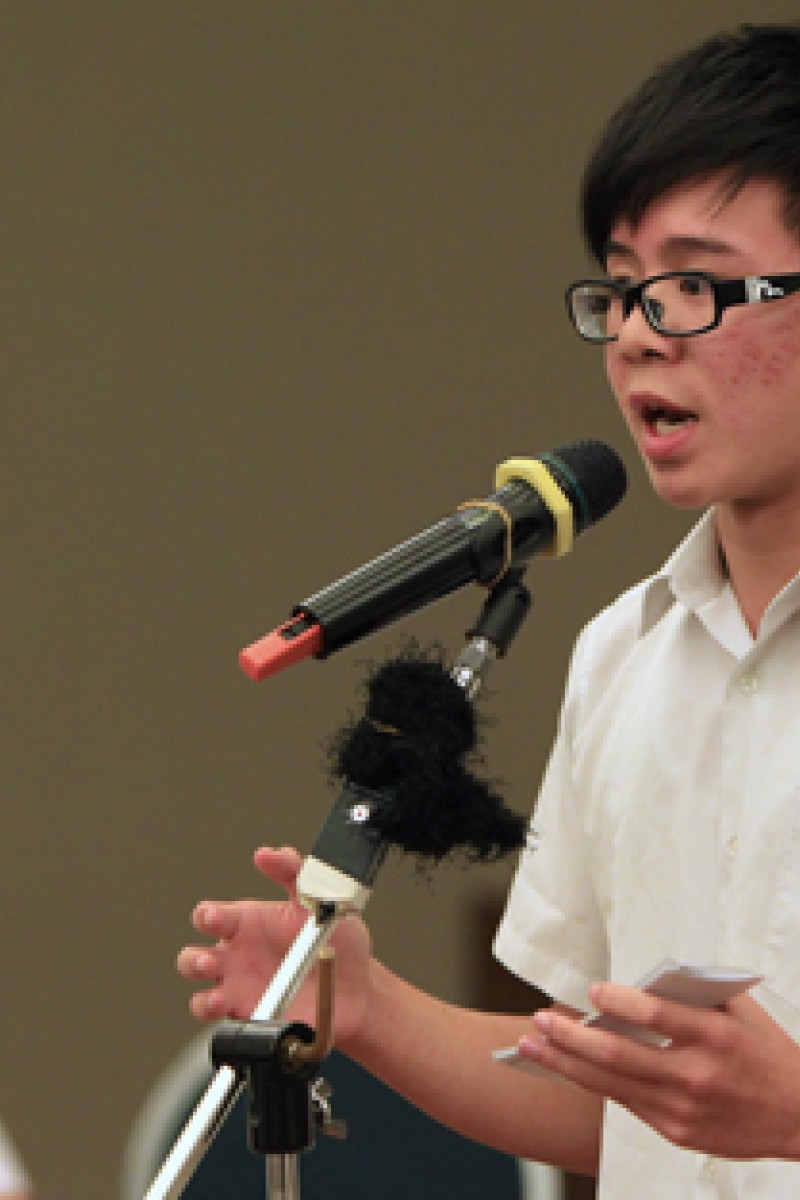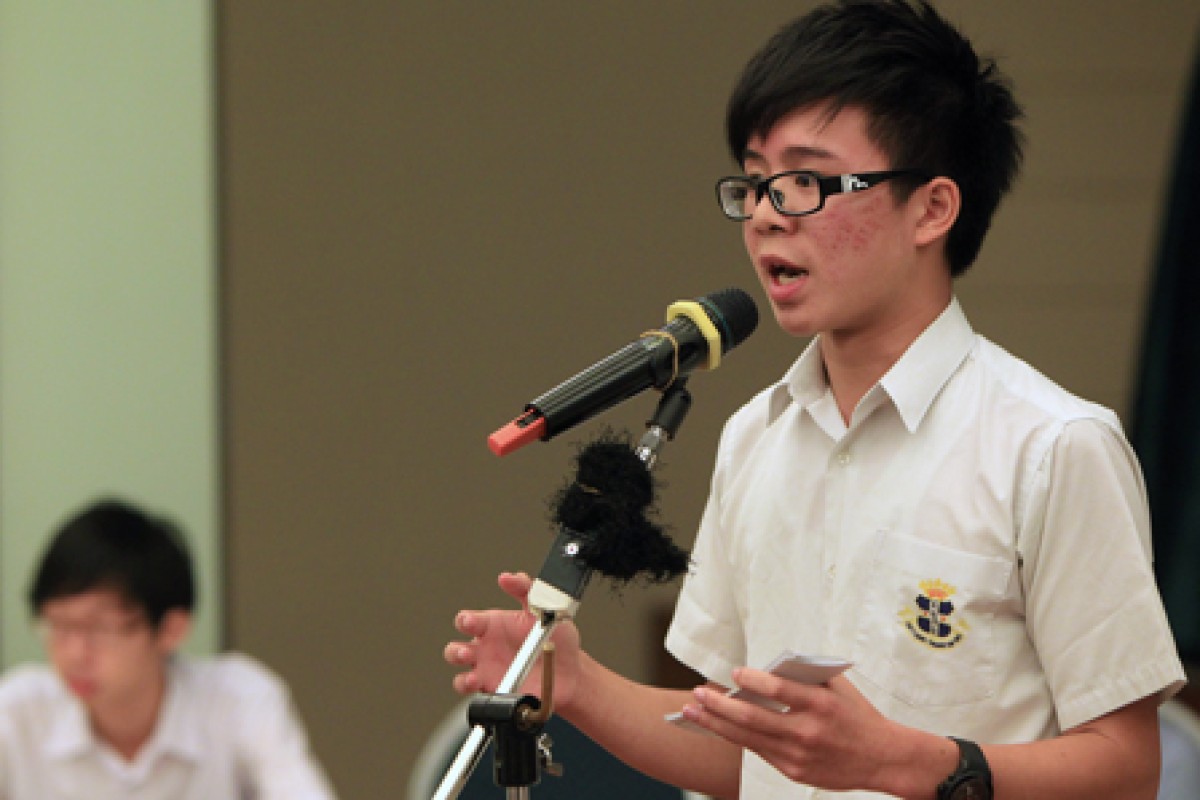
Semi-finalists argue whether national education is brainwashing
 Kenneth Wong present his views.
Kenneth Wong present his views.Is the proposed national education curriculum intended to brainwash our students? This has been the talk of the town recently. It is a thorny subject that has left lawmakers, government officials and school authorities scratching their heads.
In the Division Two semi-finals of the 13th Nesta-SCMP Debating Competition, St Stephen's College and Tuen Mun Government Secondary School (TMGSS) tackled the motion that national education amounts to brainwashing. St Stephen's won the debate and booked their place in next month's final.
The team from St Stephen's, comprising Form Five students Stanley Pang Lok-yee, Kenneth Wong Chun-ho and Lok Him-cheung, supported the motion.
TMGSS took the negative view. Their team included Form Five students Sammi Yu Sham-yee and Joyce Hung Hiu-king, and Form Six student, Edwin Leung Lap-pong.
The debate was held on October 17 at The Mariner's Club in Tsim Sha Tsui. It was adjudicated by Jeff Bell from HKFEW Wong Cho Bau Secondary School, Lily Petkovic from Kiangsu-Chekiang College (Kwai Chung), and Eleanor Jones from Fung Kai No 1 Secondary School.
The judges said both sides did a great job with their presentation and the winner of the debate was decided by the quality of the arguments. St Stephen's were given the edge because their arguments were more rational and convincing.
TMGSS lost points for misuse of words. The team tried to convince the audience that national education is positive because it nurtures patriotism and helps boost the country. But they were unaware that the word "patriotism" carries a negative meaning.
They also lost marks for trying to redefine the motion, and their third speaker broke the rules by introducing new materials that the first two speakers had not mentioned.
Jones reminded debaters about the rules. While it's the duty of the affirmative side to define the motion, the negative side cannot redefine it, she said.
"Remember the third speaker cannot introduce any new material because the debate would be over after they had spoken, and there is no way for opponents to respond," she added.
Both teams had made mistakes in their research, Jones said. "The affirmative team used examples from the United States and the European Union, which are not that relevant to Hong Kong. The negative side made the same mistake by using examples from Britain," she said.
The third speaker for St Stephen's, Lok Him-cheung, was named the best speaker. "He spoke with good pace [and] gestures. He delivered the best speech," said Jones.
In the other semi-final, the team from SKH Chan Young Secondary School - Alice Wong Chung-mann, Tiffany Pang Chung-yau and Issac Cheung Tin-ching - lost to Eunice Yiu, Erica Kwan Siu-huen and Kathy Wu Lok-yin from St Paul's Convent School.
The Division Two final between St Paul's and St Stephen's will take place on November 14 at the Science Museum.
The schools will debate the motion: "Space is the Final Frontier."
The contest is organised by the Native English Speaking Teachers' Association and the South China Morning Post.